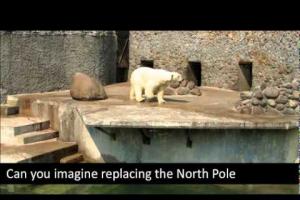“Forest in exhaustion” stems from a controversial proposal by Brazil under the UNFCCC negotiations in Poznan. The interest of Brazil to amend the Clean Development Mechanism (CDM) in order to include “Forests in exhaustion” is that it would allow the CDM to award credits under the Kyoto Protocol for reforestation projects on forest land that has been so over-exploited as to become “exhausted”, and without additional money from the carbon credits would not be replanted. However, it’s not about forests but tree plantations, a main economic activity in Brazil and other Southern countries.
Large-Scale Tree Plantations
Industrial tree plantations are large-scale, intensively managed, even-aged monocultures, involving vast areas of fertile land under the control of plantation companies. Management of plantations involves the use of huge amounts of water as well as agrochemicals—which harm humans, and plants and animals in the plantations and surrounding areas.
Bulletin articles
30 April 2011
Bulletin articles
28 February 2011
For many years now, WRM has stressed that it is unacceptable to certify large-scale industrial monoculture tree plantations. The main target has been the FSC, because it portrays itself to the world as the most reliable and respected label for wood products, and also because its members include numerous non-governmental organizations.
Bulletin articles
28 February 2011
In 2007, FSC certifying body SGS began the certification process for Veracel Celulose in Bahia, Brazil, in accordance with the FSC’s principles and criteria. Veracel is a joint venture between the Swedish-Finnish transnational Stora Enso and Brazilian-based Fibria (formerly Aracruz). It controls some 100,000 hectares of monoculture eucalyptus plantations geared to the production of pulp for export, within a total area of over 200,000 hectares. It is currently working on doubling its pulp mill production capacity and plantations.
Bulletin articles
28 February 2011
Companies that promote large-scale monoculture tree plantations do not seek the FSC label solely to increase the value of their final products. There are also companies that use the FSC for a very specific and very different purpose: obtaining certification to sell carbon credits. This is the case of Plantar, a company based in the state of Minas Gerais, Brazil.
Bulletin articles
28 February 2011
Since 1974, industrial monoculture tree plantations have spread throughout Chile, and are particularly concentrated in the regions of Bío-Bío and Araucanía, although they are also found in the regions of Maule, Los Ríos and Los Lagos.
Bulletin articles
28 February 2011
GeaSphere is an environmental pressure group working towards a more sustainable model of living based on lower impact agriculture practices that are environmentally sustainable, socially just and which ensures food security and promotes locally based economies and poverty alleviation in the southern African region. A major threat to the local integrated environment is the large scale industrial timber plantation industry, responsible for the transformation of millions of hectares of bio diverse grasslands, the primary vegetation type in most of Southern Africa’s timber growing regions.
Other information
28 February 2011
Asia Pulp & Paper (APP) is a giant pulp and paper company with a notorious eco-criminal record. It is responsible of deforesting Indonesian forests and peatlands in Riau province, Sumatra, destroying the territory and livelihoods of indigenous communities who have been living there for centuries and threatening the survival of some of them as well as leading Sumatran tigers, elephants and orangutans to the verge of extinction.
Bulletin articles
29 January 2011
The United Nations General Assembly has declared 2011 the International Year of Forests, and WRM has decided to devote its first bulletin of the year to this significant event. According to the resolution adopted by the General Assembly, the UN is committed to promoting “the management, conservation and sustainable development of all types of forests.”
Bulletin articles
30 December 2010
On the occasion of Human Rights Day, we think it would be opportune to share a report conducted this year in Brazil: a research study that analyses the impacts of commercial mega-projects on human rights, focusing in this case on large-scale monoculture tree plantations in the northern region of the state of Espirito Santo.
Other information
30 December 2010
The Pacific watershed of Guatemala comprises 17 river basins. Most of the rivers in this region have a relatively short length of around 100 kilometres, from their source in the upper reaches of mountains and volcanoes to their mouths on the Pacific coast. One of these rivers is the Coyolate, which begins in the mountains of the department (state) of Chimaltenango and flows through numerous municipalities and communities.
Other information
30 December 2010
West Africa used to be the centre of the palm oil industry. The export of palm kernels began in 1832 and by 1911 “British” West Africa alone exported 157,000 tonnes of which about 75 percent came from Nigeria. In the 1870s, British administrators took the plant to Malaysia and in 1934 that country surpassed Nigeria as the largest exporter of the product. By 1966, Malaysia and Indonesia had surpassed Africa’s total palm oil production.

